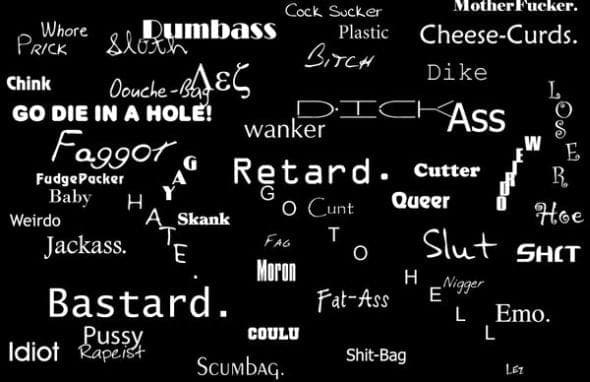
For most of my life I have been conscious of the potent power of words and their innate capacity to imprison or liberate. “If you name it,” the ancient seers sagely advised, “you will claim it.” Invariably, unless we are consummate manipulators, our words, and actions also, are an out-picturing of who we really are. Words, just like the guns used in the spate of criminal activity afflicting our nation, can be lethal, causing damage to the psyche that can last a lifetime, or can be cathartic, guiding us to self-knowledge and inner peace.
Recently as I listened to a young woman relate a heartrending tale of being rejected by both her parents – the mother wishing that she had never been born, and the father adamant that she would amount to no good – I reflected that this form of psychological violence seems to be endemic in our society and needs to be weeded out with haste.

How many times have we attached demeaning labels to our children, relatives and friends, or silently listened, sometimes with relish, as another person was castigated in our presence? The vindictive verbatim might tumble off the tongue effortlessly and almost remorselessly because often the perpetrator has suffered a similar assault and is merely mirroring a type of behaviour that is familiar, maybe even comfortable. The primary intention is to hurt, or to in some way obstruct the path of someone else, emotionally, spiritually, professionally, sexually or financially. During the tirade one tends to lose sight of the fact that our words seldom return to us void, and because the subconscious does not have a sense of humour, what we bring into the life of others, is inevitably manifested in our own.
I recall that when I was growing up, we sang with abandon and naïvety, “Sticks and stones may break my bones, but words can never hurt me”. It was a litany steeped in mendacity, as we aped the destructive behaviour of the adults in our midst, minimizing our classmates, playmates and kin, through thoughtless words and deeds. Unkind nicknames were commonplace and still cast their baneful shadow into the present. I was called “Big Head”, but found the name hilarious after a teacher convinced me that it was just a matter of time before my head and the rest of my body balanced out. These days when the term “big” is applied to another part of my anatomy, I hope the word is being expressed in physical form and not psychological. “Rear delight?” I tentatively smile.
It is unfortunate that many of our caregivers then, as now, endorsed the notion that cutting words were a practical means of communication and reveled in the spectacle of publicly telling off other people, especially those one disliked or disagreed with.
The situation was aggravated by the fact that our towns and villages are a hot bed of gossip. I would hazard a guess that if an in depth study was carried out into the behaviour of society’s malcontents, it might show that some of them are wrestling with the demons of demoralising words that have become a part of their mindset and resulted in low self-esteem and self-hatred. Social scientists insist that a negative statement, constantly repeated, just like a positive affirmation, becomes an integral part of our individual consciousness, and by extension, the mass consciousness.
And while, human nature dictates that at some time or the other, we might hurt another’s feelings through our words, a swift and sincere apology can be a healing balm. However, if the primary intent is to vilify or seriously harm, in other words, making the person “feel small” saying sorry would be like rubbing salt into a gaping wound.
All of us at some point in our lives will evolve to the understanding that our words, which are our thoughts articulated, and our actions, are a creative force and must be used prudently.
Hey, speak consciously this weekend and have a good one.

Be the first to comment